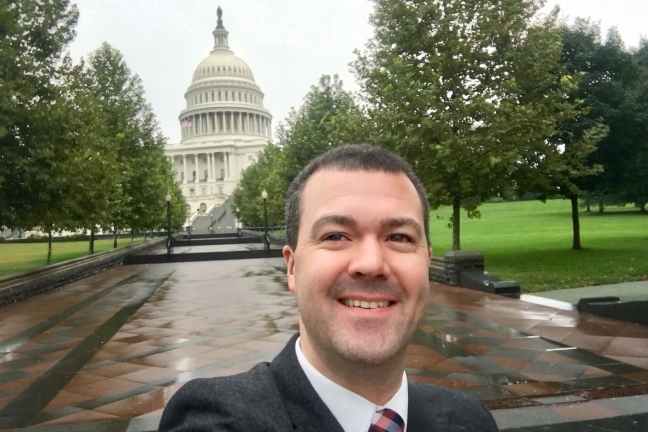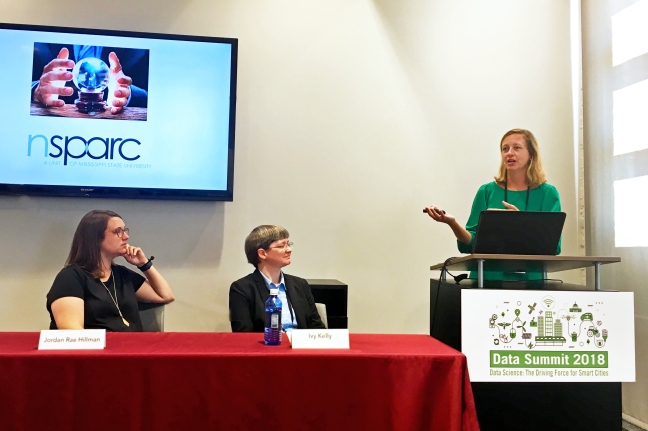By Allison Matthews
STARKVILLE, Miss.—Mississippi State is launching a comprehensive initiative to help Mississippians battle obesity with a $5.5 million grant awarded to MSU Extension by the Centers for Disease Control and Prevention.
David Buys, state health specialist and assistant professor in MSU’s Department of Food Science, Nutrition and Health Promotion, said obesity and associated diseases such as diabetes and hypertension are enduring problems in the state, but a new program called “AIM for CHANGE” will help Mississippians fight the problem.
Buys is the principal investigator for the five-year grant that will provide nearly $1.1 million annually over the grant period to fund AIM for CHANGE. The title is short for “Advancing, Inspiring, Motivating for Community Health Through Extension.”
MSU Extension will work extensively with the Mississippi Public Health Institute and University of Mississippi Medical Center.
A dozen of the state’s 82 counties have adult obesity rates higher than 40 percent. Buys said these high rates must be curbed to prevent increasing chronic disease rates, health care costs and premature deaths.
“AIM for CHANGE should reduce health disparities by increasing access to healthier foods and access to safe and accessible places for physical activity for all people in the target communities,” Buys said. “We will move beyond education to include approaches that change the policies, systems and environments so that sustainable changes can have a positive effect for the entire population.”
The AIM for CHANGE initiative goals include reducing obesity rates through a comprehensive approach that not only addresses issues within food systems, such as access to healthy foods, but also takes environmental and policy-level approaches to help communities address issues such as outdoor recreation, community walkability and educational programming.
The grant will engage multi-sector efforts and partnerships at the state and local levels to look at obesity through the lens of various disciplines. The core team includes experts across policy, systems, environment and individual levels with specialties in local government, food systems, landscape architecture/built environment, kinesiology/physical activity and nutrition.
A dietitian and kinesiologist will support individual nutrition and physical activity changes. A landscape architect will support county and community environmental improvements. A food systems specialist and a government and policy specialist will support county and community systems and policies. Expertise comes from MSU’s departments of Agricultural Economics, Kinesiology, Landscape Architecture and the MSU Extension Center for Government and Community Development.
The program will promote improved access to healthier foods and address public transit, and walkability to schools, worksites, parks and recreation centers through implementing master plans and land use intervention.
MSU Vice President for Research and Economic Development David Shaw said the program is among the first of its kind in that it takes a coalition-led approach to identifying needs of communities and brings expertise from various disciplines to implement solutions.
“We were able to leverage many partnerships and build on a track record of collaboration,” Shaw said. “We anticipate that this will lead to strong and enduring partnerships that will prove beneficial to our state beyond the time frame of this grant.”
Phase One will target Holmes, Humphreys, Issaquena and Sharkey counties, where UMMC already has a physical presence and is providing those areas with clinical health care services.
“We’re excited about this opportunity to assist local communities to implement policies and practices that will significantly reduce the prevalence of obesity and, ultimately, chronic diseases such as hypertension and diabetes,” said Dr. Josh Mann, project lead for UMMC and professor and chair of the Department of Preventative Medicine. “We also anticipate that this effort will lead to additional future opportunities for prevention and population health experts at UMMC and MSU to work together in tackling high-priority health challenges faced by our state.”
Dr. Richard Summers, UMMC associate vice chancellor for research, said, “Obesity is one of the most challenging conditions that impacts the health of Mississippians today. UMMC has an obligation from both the clinical and academic perspectives to address such serious health care issues facing our population. This type of federal grant funding in partnership with the Centers for Disease Control will provide needed resources for us to fulfill this obligation.”
Other key partners include the Mississippi State Department of Health; MSU’s Carl Small Town Center and College of Education; Mississippi Department of Agriculture and Commerce; and Alcorn State University. The evaluation will be led by MSU’s Social Science Research Center.
After the program’s first year, the grant will include additional counties – targeting those with the highest obesity rates – as it continues to support Phase One coalitions. Coalitions will ensure a high degree of local involvement and empower local residents to develop healthier cultures while addressing both community and individual-level factors.
The coalitions will be developed by Mississippi Public Health Institute and will represent multiple demographic backgrounds and health statuses. Coalitions will work to avoid duplication of efforts with existing projects through frequent communication with their network of partners. They also may apply for mini grants to help address community needs. As coalitions identify preferred approaches to address factors that contribute to high rates of obesity in their communities, AIM for CHANGE leaders will provide support and technical assistance to implement solutions.
Educational programs will be delivered to community groups, schools and civic and faith-based organizations by Extension agents to increase awareness among community members about nutrition and physical activity as a means to reducing obesity.
Buys added, “It’s not often that you get this kind of partnership across so many sectors, and we’re fortunate to be in a position to coordinate this comprehensive effort.”



